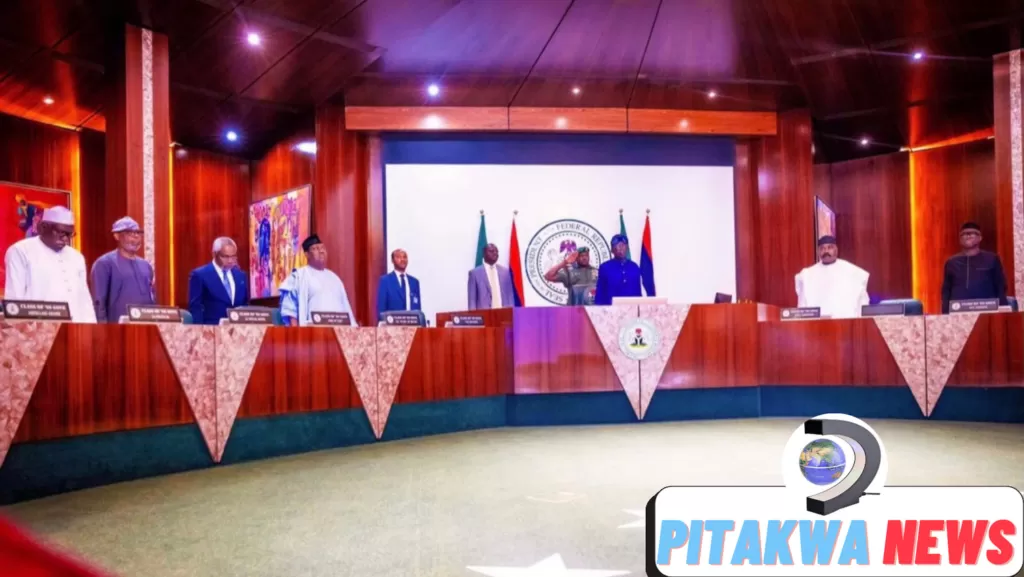FEC Approves N27.5tn As 2024 Budget

The Federal Executive Council (FEC) in Nigeria has recently reviewed the Medium-Term Expenditure Framework (MTEF) and approved a budget of N27.5tn for the year 2024. This budget is aimed at prioritizing critical sectors such as education, health, infrastructure, and security, among others, to ensure sustainable economic growth and development.
Briefing State House Correspondents shortly after the Federal Executive Council meeting at the Presidential Villa, the Minister of Budget and Economic Planning, Abubakar Bagudu, said it revised the MTEF and the Fiscal Policy to use an exchange rate of N750 to $1 and also a benchmark crude oil reference price of $77.96 per barrel.
Bagudu explained that the revision was made in order to reflect current economic realities and to ensure that the Nigerian government could adequately fund its budget for the next fiscal year. The new exchange rate and crude oil reference price are expected to provide a more realistic basis for revenue projections and budget planning.
The Minister also stated that the revised MTEF and Fiscal Policy would be submitted to the National Assembly for approval. He expressed confidence that the lawmakers would consider the proposals in a timely manner, in order to ensure that the budget could be passed and implemented as soon as possible.
Bagudu emphasized that the government remains committed to ensuring that the budget is focused on meeting the needs of the Nigerian people, and that it is implemented in a transparent and accountable manner. He urged Nigerians to support the government’s efforts to promote economic growth and development, and to work together to overcome the challenges facing the country.
The FEC’s decision to approve the budget reflects the government’s commitment to achieving its developmental goals and objectives. The MTEF review process is an essential step in ensuring that government expenditure is in line with the country’s economic realities and priorities.
The approved budget is expected to drive growth and development across various sectors of the economy, creating job opportunities and improving the standard of living for Nigerians. The government has also committed to ensuring transparency and accountability in the budget implementation process, which will ultimately lead to better outcomes for all.
Furthermore, Edun said the African Development Bank approved $1 billion concessional financing for Nigeria with a moratorium of eight years, at about 4.2 percent per annum, in recognition of the economic measures that have been taken and the swift movement towards macro stability.
This is a significant development for Nigeria as it continues to grapple with economic challenges. The concessional financing will provide much-needed support to the country’s efforts to stabilize its economy and promote sustainable growth. The moratorium of eight years and the low interest rate of 4.2 percent per annum will give Nigeria the necessary breathing space to implement economic reforms and invest in infrastructure development. These measures are expected to create jobs, reduce poverty, and improve the standard of living for Nigerians. The African Development Bank’s decision to support Nigeria is a testament to the country’s commitment to sound economic policies and the progress it has made in recent years. With continued support from international partners and a sustained focus on economic reforms, Nigeria is well positioned to achieve its development goals and become a leading economy in Africa.
Overall, the approval of the budget by the FEC is a positive step towards achieving Nigeria’s long-term economic growth and development objectives. It is hoped that the government will continue to prioritize critical sectors and implement policies that will lead to sustainable economic growth and development for all Nigerians.






